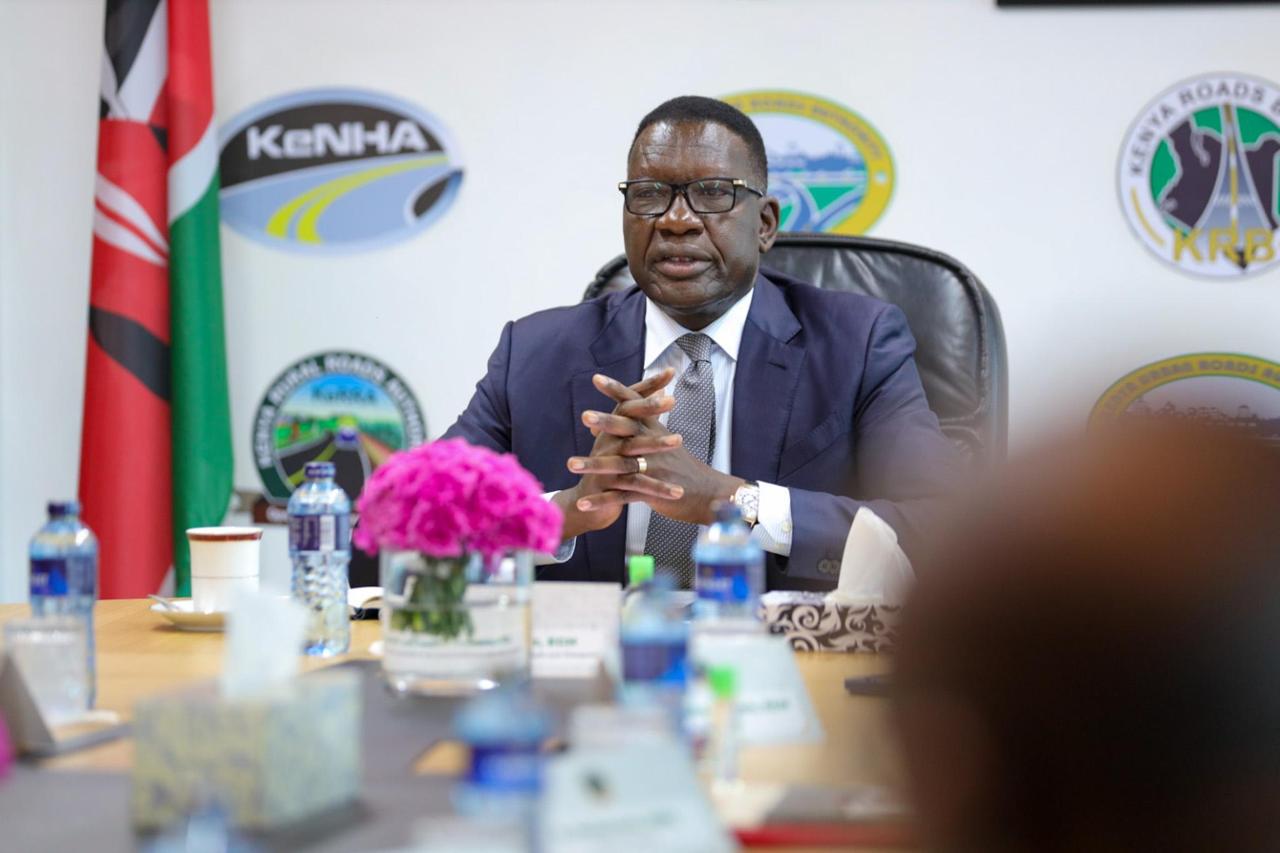
Gov’t assures public of transparency in new roads funding model
The Cabinet Secretary for Roads and Transport, Davis Chirchir, has defended the government’s decision to securitize a portion of the Road Maintenance Levy, describing it as a bold, transparent, and legally sound financing model aimed at revitalizing the road sector and addressing a Ksh 175 billion backlog in pending bills.
Amid public interest and media coverage surrounding the initiative, the CS, in a statement, said the securitization plan—implemented through the Kenya Roads Board (KRB)—offers a sustainable solution to long-standing challenges that have stalled over 580 road projects nationwide.
“This model allows us to pay contractors promptly, revive suspended projects, and bring lasting relief to communities, all without adding to Kenya’s debt burden,” said the Cabinet Secretary.
He revealed that upon assuming office, the Kenya Kwanza administration inherited unpaid road sector bills totalling KSh 175 billion from the previous administration. These pending obligations led to a widespread suspension of infrastructure works, affecting livelihoods, road users, and the country’s development agenda.
“Recognizing the urgent need for a sustainable solution, the Kenya Kwanza government considered several financing options to address these historical obligations,” he stated. “Among them, securitization emerged as the most viable and legally sound mechanism to unlock funds without burdening the exchequer with additional debt.”
The CS emphasized that the decision was made transparently, with full legal compliance and adherence to best financial practices.
“Securitization is not the creation of new debt,” he explained. “It is the sale of rights by the Kenya Roads Board to a Special Purpose Vehicle (SPV) to receive a portion of future Road Maintenance Levy collections—specifically KSh 7 from the current KSh 25 per litre levy. The SPV, operating independently, raises funds upfront using these rights to clear verified pending bills. Crucially, the KRB has no further obligation or liability beyond the sale of these rights.”
He underscored that the entire process was executed with full transparency and legal oversight.
“All statutory requirements were fulfilled, and the process underwent due diligence, approvals, and oversight by the National Treasury and the Office of the Attorney General to ensure compliance with Kenya’s financial laws,” said CS Chirchir.
“We wish to reassure the public that there is no secrecy in this process,” he reiterated.
Chirchir further assured that the Road Maintenance Levy will continue to fund ongoing and future road development as originally intended, with only a clearly defined portion being allocated to settle historical debts.
This financing approach ensures contractors are paid promptly, stalled projects are revived, and communities benefit from improved infrastructure—all without increasing public debt. It also secures the continued role of the Road Maintenance Levy in supporting national infrastructure development.
